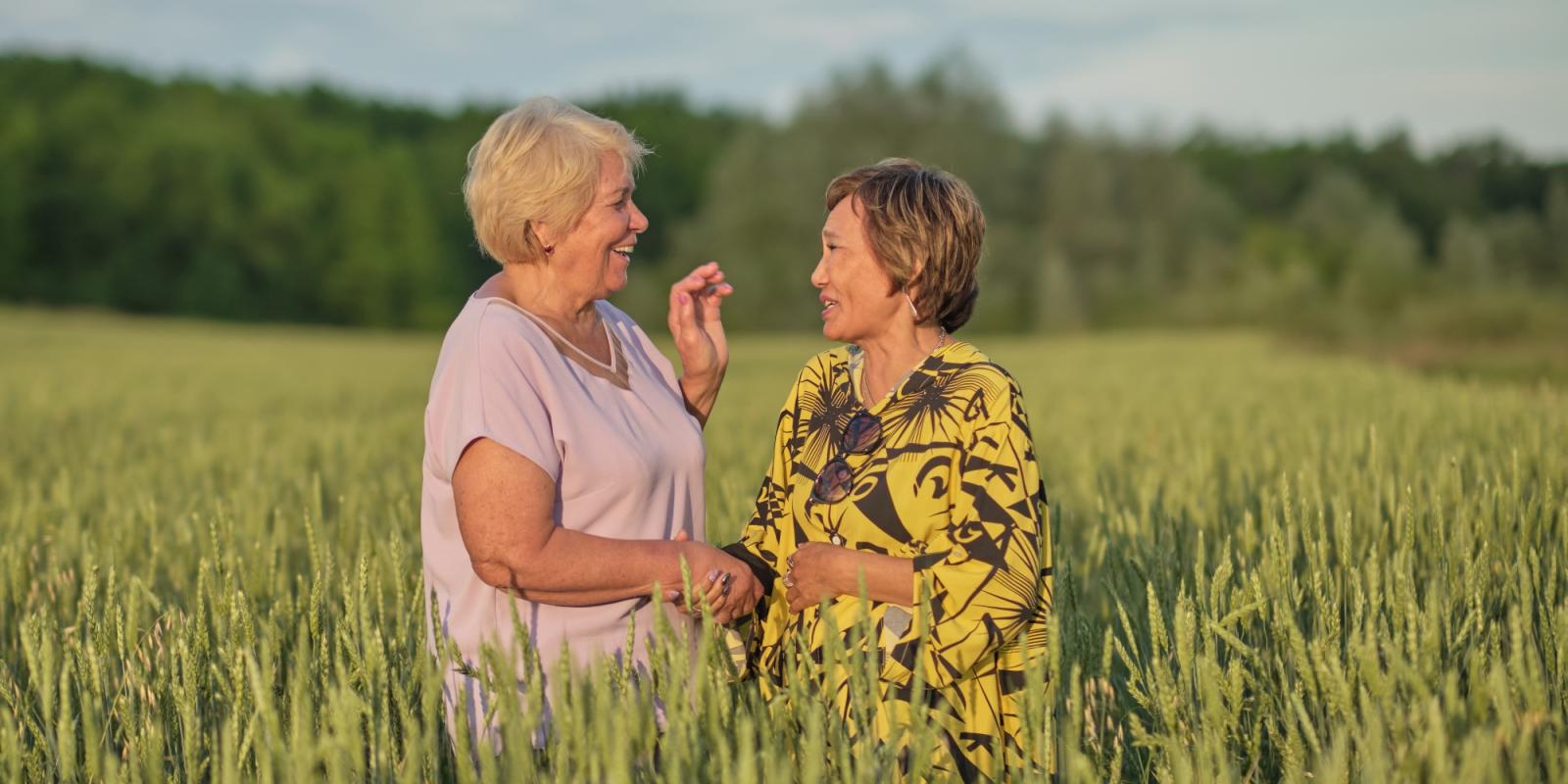Ernest Gonzales is an idealist who is actively working to evolve how we age until it is equitable. He gets a mind-boggling amount done, and we got a peek into his methods working on this issue as he was incredibly organized and somehow always cheerfully responsive to queries.
At New York University he’s the James Weldon Johnson Professor of Social Work, Associate Professor of Social Work, and directs both the MSW program and The Center for Health and Aging Innovation at NYU’s Silver School of Social Work. Gonzales also co-leads the American Academy of Social Work & Social Welfare’s Grand Challenge on Advancing Long, Healthy, and Productive Lives and is senior fellow of the NYU Aging Incubator.
Essentially, he is doing everything he can in creative ways to foster intergenerational connection, working closely with Generations United and CoGenerate, both of which contributed to this issue filled with great ideas about how we might more productively engage elders with younger people, and keep elders gainfully involved in life and work.
“I am inspired by my students and colleagues who are driven to improve society—for everyone,” Gonzales said.
“Over the winter break, I had dinner with many friends and colleagues. An acquaintance reflected out loud at dinner: ‘I don’t think my kids are trying to make the world a better place … they’re in finance.’ In that moment, I was again grounded in my career as an educator, researcher, advocate for healthy and productive aging. I’m inspired by research findings and programs that demonstrate it’s possible to age well and in community.”
He is also a first-generation Latinx gerontologist whose early life experiences growing up in El Paso, Texas, with his loving maternal grandparents, parents, and uncles, inspired him to study how we age in a society that aspires for justice and equity but practices systemic racism, sexism, homophobia, and ageism.
Proud to have received the James Weldon Johnson Professorship at NYU, Gonzales said Weldon Johnson was an “important force for social justice during the Harlem Renaissance and served as Secretary to the NAACP. Being awarded this distinguished honor at NYU meant leadership recognized how I try to strive for equity and social justice as a gerontologist.”
Gonzales’ research has been supported by The National Institute on Minority Health and Health Disparities, National Institute on Aging, U.S. Social Security Administration, AARP Foundation, The Eisner Foundation, Fan Fox and Samuels Foundation and other public and private funders.
‘I’m inspired by research findings and programs that demonstrate it’s possible to age well and in community.’
He has served as content expert for the National Academies of Sciences, Engineering, and Medicine, Division of Behavioral and Social Sciences and Education and the National Science Foundation, as well as given testimony in the U.S. Senate on productive aging; debated paradigms on aging at The World Bank and given talks at leading institutions such as The United Nations, Harvard University, Stanford University, MIT, and others.
Further academic accolades include the Peter T. Paul Career Development Award from Boston University’s School of Social Work, where he was an assistant professor prior to NYU, and during his doctoral studies he received the Brown School of Social Work’s Dissertation Award and the Teaching Excellence Award for Doctoral Teaching Fellows, The John A. Hartford Pre-Dissertation Fellowship and Dissertation Fellowship, and the Washington University Chancellor’s Fellowship.
He hopes this issue of Generations Journal, which is dedicated to promoting the health and well-being of a diverse society through productive activities for everyone, inspires ideas and daily practices on how to achieve such a healthy, peaceful, and cohesive society.
“All too often social structures segment populations (e.g., old vs. young, men vs. women) and it’s time we reorient ourselves and our social structures to be more fluid and inclusive,” said Gonzales. “This special issue tries to integrate the generations and various populations to promote health and social relations.”
Gonzales’ initial proposal to the Generations Journal Editorial Advisory Board panned out in the final product. As he said, “All too often, systemic barriers undermine choices and opportunities for minoritized groups to be fully engaged in society. The authors of this special issue have a unique perspective on how to bring communities together—communities that are often pitted against each other—to solve society’s most pressing issues such as academic achievement, housing and economic security, social connectedness and a strong sense of belonging through civic engagement and paid work. In so doing, they offer conceptual frameworks and real-world practices to promote health equity across diverse communities through a productive aging lens.”
The first half of the issue is devoted to intergenerational interventions and the second builds on research from the National Academies report, “Understanding the Aging Workforce and Employment at Older Ages,” bringing our attention to the growing diversity of the labor force and the challenges and opportunities in that diversity to promote health and work into later life.
“The challenge before us in the 21st century is to effectively bring diverse communities together in harmony to advance an equitable and peaceful society,” said Gonzales.
“We hope these perspectives on productive aging inspire novel approaches to theory and practice to promote health and well-being for everyone.”
We certainly were inspired reading these pieces and hope you are, too.
Alison Biggar is ASA’s Editorial Director.
Photo credit: Shutterstock/Yavdat













